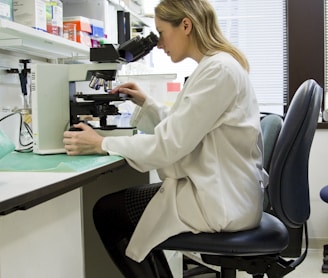What is a CLIA Medical Laboratory Technical Consultant?
A Clinical Laboratory Improvement Amendments (CLIA) Technical Consultant is a professional who provides expertise and guidance in the field of clinical laboratory testing.
5/28/20231 min read


CLIA is a set of federal regulations in the United States that establish quality standards for laboratory testing to ensure accuracy, reliability, and timeliness of patient test results.
A CLIA Technical Consultant plays a crucial role in assisting laboratories to meet CLIA requirements and maintain compliance. Their responsibilities may include:
Advising on laboratory practices: They provide guidance on laboratory operations, quality control, quality assurance, test methodologies, and instrument selection to ensure accurate and reliable test results.
Assisting with test validation and verification: They help laboratories in validating new tests or verifying existing test methods to ensure their accuracy, precision, and reliability.
Developing and implementing quality control procedures: They help laboratories establish quality control procedures and monitor their effectiveness to detect and correct any errors or deviations.
Conducting staff training and competency assessments: They provide training to laboratory personnel on proper testing techniques, instrument operation, safety protocols, and regulatory compliance. They may also assess the competency of laboratory staff through proficiency testing and competency evaluations.
Reviewing and updating laboratory policies and procedures: They review and revise laboratory policies and procedures to ensure they align with CLIA regulations and industry best practices.
Assisting with inspections and audits: They prepare laboratories for CLIA inspections and audits conducted by regulatory agencies or accrediting organizations. They help address any deficiencies or non-compliance issues identified during these assessments.
Staying updated with regulatory changes: They continuously monitor changes in CLIA regulations and other relevant guidelines to ensure the laboratory remains compliant with the latest requirements.
Overall, a CLIA Technical Consultant acts as a resource for laboratories, helping them navigate the complex regulatory landscape, improve testing processes, and ensure the delivery of accurate and reliable test results to healthcare providers and patients.
Sound Medical Lab Consultants
sales@soundlabconsult.com
602-874-1311
National Clinical Lab Consultants for CLIA COLA CAP TJC
24/7/365 Support
Laboratory Billing Experts
Mobile Laboratory Billing
Lab Lead Gen and Sales
Lab Phone Support and Data Entry
Lab Back End Support
Lab Critical Call Services
